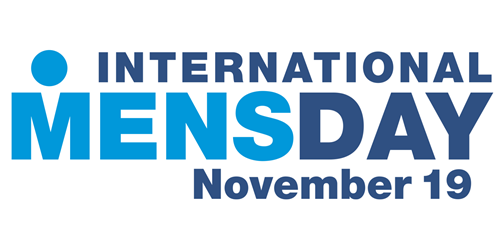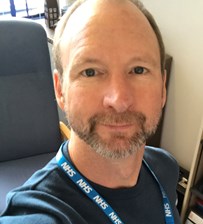"Talk to people, even when it’s difficult"

To mark Movember and International Men’s Day and to raise awareness of men's mental and physical health, some of our male colleagues have shared how they look after their wellbeing and look out for others.
and to raise awareness of men's mental and physical health, some of our male colleagues have shared how they look after their wellbeing and look out for others.
Greg Wood is our Clinical Director of Psychological Services.
How do you look after your physical and mental wellbeing?
I try to be aware of my physical and mental health needs. Challenging experiences throughout my life have helped me gain perspective.
I find the framework of Acceptance and Commitment Training assists me to not get too caught up with the literal interpretations of my own thoughts and to be more accepting of discomfort.
It helps me to try focus on the here-and-now rather than getting anxious about the future or regretful about the past. It also helps me to maintain a broad and flexible perspective and understand my own home and work values.
Having said that, the pressures of work and demands in life can be exhausting, and I frequently fall foul to avoidance (of exercise and getting more of a balance). When this happens, I try notice it, and what triggered it, and do something different to get back on a more enabling and valued track.
In what ways do you look out for your male family members, friends and colleagues?
I have learned that you need to be actively interested in others’ lives so they can feel comfortable sharing when in need. Sometimes it’s tricky to find the time for all the demands at work and home, as well as becoming involved in helping address the needs of others.
Really understanding your true values helps you to tune in to the needs of others, and to speak up for and stand up for those who may need you to.
I try my best to do this for family, friends, colleagues and our service users. You cannot always get this right, so it’s important to not to beat yourself up for it – just learn, and do better next time.
How would you spot the signs that someone might not be ok?
Obvious signs include people looking exhausted, acting uncharacteristically, avoiding you, or becoming unhealthily narrowly focused.
Sometimes it just needs you to ask “how are you doing?” When said with genuineness, people can pick that up, and respond honestly.
My advice is to take time, pause, show interest, and ask questions. You cannot do everything for everybody, but you can do small very meaningful things for some, that really have the potential to make a difference.
What would you say to encourage your male family members, friends and colleagues to look after themselves and reach out if they need to?
Talk to people, even when it’s difficult. Take a step back and look at your problem/life/self from a broader perspective, in the present moment.
Be aware this is just one moment in your life.
Don’t get too caught up with what can be called 'self as content' - the titles, ranks, bank balances, possessions, awards.
Try to focus on 'self as context' - being a worthy, meaningful human being in a natural world, with purpose.
Take a moment to consider the balance in your life. Is there too much of one thing or another, at cost?
Make regular contact to touch base - even a text or Facebook message can be meaningful.
And understand what you truly value, in each area of your life. Try to understand the tensions between these different areas, and sometimes differing values, and look at what is needed to make decisions, priorities, or choices.
Ask for help when you need it, because that’s the way of showing others they can ask for help too.
Be kind to yourself and try to look at whether you would like to be treated the way you treat others.
And accept that you won’t ever get it all right, but you can always learn, and try again.
Tell us an interesting fact about you
I have worked as a parking attendant, flower-picker, shop assistant, horse-racing handler who put the horses in the starting pens, a pebble-paving and wall-coating salesperson, Acting Officer Commanding of Squadron responsible for the safety of an airport and Air Force base, manager of an HIV/AIDS treatment agency, helped develop a community psychology service, and helped run a private company with global projects.
